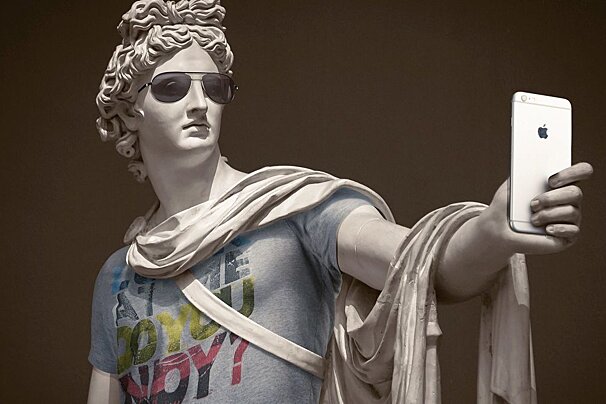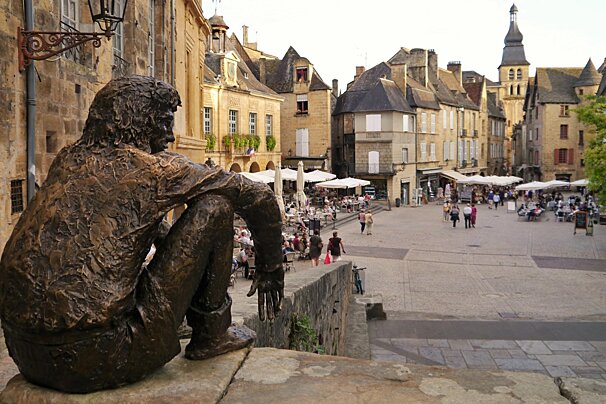Tourist Information in La Loire
Get tourist information for La Loire
Visiting a new destination always raises typical questions, here is a list of practical information covering everything from money exchange, to national holidays, driving, health and more.
Time in La Loire
Like the rest of France, La Loire is one hour ahead of Greenwich Mean Time (GMT+1), but from late March until late October, summer time (GMT+2) applies.
Opening times in La Loire
In addition to the times shown below, large department stores, as well as supermarkets and shops in tourist resorts may open outside these times, especially in the summer (or in the winter for ski resorts!). In general, pharmacies, banks and shops close on Sundays.
- Shops: 9.00-12.00; 14.00-19.00
- Offices: 9.00-12.00; 13.00-17.00
- Banks: 8.30AM-12.00; 13.00-17.00
Post offices in La Loire
Post offices (La Poste) are usually open from 09:00 in the morning until 12 noon, then reopen after lunch until around 17:00/18:00. Some will also open on Saturday morning.
National holidays in France
Many shops and offices close for longer periods around Christmas and Easter, as well as for the festivals of Corpus Christi in May/June and Bastille Day on 14 July.
- 1 January - New Years Day
- Mar/Apr - Easter Monday
- 1 May - Labour Day
- 8 May - VE Day
- May - Ascension Day (39 days after Easter)
- May/June - Whit Monday (49 days after Easter)
- 14 July - Bastille Day
- 15 August - Assumption of the Virgin
- 1 November - All Saints' Day
- 11 November - Remembrance Day
- 25 December - Christmas Day
Driving regulations
For more information about driving in France please see our Driving Guide.
- Speed limits on: motorways (autoroute) 130kph; dual carriageways 90kph; minor roads 90kph; urban roads 50kph
- Seat belts: Must be worn in front seats at all times and in rear seats where fitted
- Drink driving: Random breath-testing exist any time of the day and especially at night. Limits are as follows - 50mg of alcohol in 100ml of breath, for your own safety as well as others. Two breath tests must be carried in the car.
- Fuel (petrol - essence) is available in different grades - unleaded (Sans plomb), and diesel (gazole).
- Petrol stations are normally open 06:00-22:00, closed Sundays, though larger ones that are often self-service are open 24 hours. Most take credit cards. Note there are fewer petrol stations in the mountain areas.
Safe water
Tap water is generally safe though it can be heavily chlorinated. Mineral water is recommended as is cheap to buy and is sold as eau gazeuse (carbonated) and non gazeuse (still). Remember to drink plenty of water during hot weather.
Electricity in France
The power supply in La Loire is 230 volts. Sockets accept two-round-pin style plugs, so an adaptor is needed for most non-continental appliances and a transformer for appliances operating on 100-120 volts.
Telephones in France
Most public telephones do not take coins. A phonecard (Telecarte) can be purchased from post offices, tabacs and some supermarkets. NB. Emergency calls can be placed without the use of coins or phonecard. The international telephone code for all of France is +33. If you want to dial a number within France from a land line, you do not need to use the international code before the rest of the number. However if you are using a foreign mobile phone to dial a French number then you will need to enter the +33 before the number. For telephone operator dial 3006 from a landline - this is an automated service to place a call.
Personal safety in France
The national police force are split into 3 - Police Nationale, Gendarmerie Nationale and Compagnie Republicaine de la Securite. In addition to this most cities and towns have their own Police Municipale who deal with petty crime, traffic offences and road accidents. If you need a police station ask for the 'gendarmerie' and for police assistance just call '17' free from any call box or telephone.
To help prevent crime:
- Do not carry more cash than you need
- Do not leave valuables on beach or poolside
- Beware of pickpockets in markets, tourist sights or crowded places
- Avoid walking alone at night
Health in France
For further information please see our Health and Emergencies section.
Drugs - Prescription and non-prescription drugs and medicines are available from pharmacies, distinguished by a large a green cross. They are able to dispense many drugs that would only be available on prescription in other countries.
Medical Insurance - Nationals of EU and certain other countries can get medical treatment in France with the relevant documentation, although private medical insurance is still advised and is essential for all other visitors.
Dental Services - Dental treatment is not usually available free of charge as all dentists practice privately. Dental treatment should be covered by private medical insurance.
Toilet facilities
Nowadays, the majority of public toilets are of the standard variety, though you might still come across an old-fashioned 'squat style' toilet. In some French towns and villages you can now find an automated, self-cleaning toilet which is both hygienic and practical. You put in your coins (often a euro) and push open the door. You have 15 minutes to do your business. After you close the door behind you, the robotic cleaning starts, with disinfectant spraying from all corners, brushing of the toilet seat and bowl and then a final blow dry.
Other recommended places for a similar visit are: department stores, shopping malls, gas stations along the Autoroute, fast-food restaurants, and railway stations. Often, you will encounter an attendant (who regularly cleans the toilets) with a saucer for receiving your coins. In fast-food places, as in cafés or bars, you are expected to have a drink or something to eat. While most toilets in these places have separate men and women facilities, they tend to be right next to each other with open entries and (for the lucky woman) a full view of urinals and the men using them (only seen on the back!). No embarrassment is evident, as there is none from the French male driver who seems to delight in stopping his car alongside the road and taking a pee just a step away from his vehicle. You don't see French women squatting alongside the road. Then again, perhaps the dearth of Turkish toilets may have resulted in a lack of female proficiency.
Sun advice
The sunniest (and hottest) months are July and August with an average of 11 hours sun a day and daytime temperatures of 29ºC. Particularly during these months you should avoid the midday sun and use a strong sunblock.
Rules for swimming pools in France
A swimming pool at your disposal during your stay in La Loire is on many visitors' wish list. With the hot summers, it's a delight to take a dive into the sparkling waters. The dark side of such pleasure is the annual statistic of accidental drowning (average of 47 deaths per year in France and 152 non-fatal accidents), particularly of children under 6 (22 deaths per year and 33 non-fatal). In 2003, the French parliament passed a law, which came into effect on January 1, 2004, for properties that are rented, and 2006 for properties that are not rented out. So if your holiday rental gives you access to a pool, you should expect a gated pool. This applies to private homes, as well as hotels, camping grounds, gites, or any other place that receives paying guests.
Note that if there's an accident and there is no gate, the insurance companies here in France do not cover.
Tax - VAT in France
VAT is currently at 20%. There are reduced rates of 10% (restaurant food, books, public transport, cleaning services) and 5.5% (essential foodstuffs).
Further information and advice in France
You should not reveal any personal information about yourself, such as your address, credit card details, telephone number, on the Internet or via email unless you are certain that it is safe to do so and that any confidential or private information you share over the internet is sent by secure encryption means.
It is always your responsibility to ensure full compliance with any passport, visa, and inoculation requirements as governed either by your country of residence or by those you will be travelling to.
Be advised that various consumer protection schemes and laws relating to travel and tourism companies exist for your financial protection and that it is in your interests to be aware of such schemes.
Any activity in the mountains can be considered a dangerous activity. We advise you to make yourselves fully aware of such potential dangers and the likeliness of their occurrence in your case. Such dangers include: venturing beyond your own capabilities or those of the group you are in the company of; ignoring safety warnings and advice made available locally or through television, newspapers or via the Internet, with regards avalanches, piste closures, rock falls, landslides and high water levels; venturing off-piste or to areas of uncertainty without a qualified guide or advice from local experts; improper preparation, fitness, and provision of equipment and protection from the elements.
You should always ensure that you have obtained sufficient insurance cover, either via your own policy or through that of any event organiser or operator, appropriate to the activities you will be participating in and you should carry details of this on you at all times.













